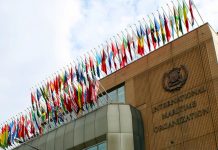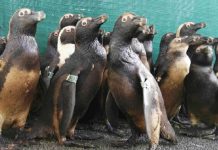Most Popular
The Merchant Shipping Bill: Charting Troubled Waters
In recent months, the Merchant Shipping Bill introduced in the Parliament of South Africa has stirred vigorous debate among stakeholders in the maritime industry, civil society,...
Brainstorming a Future Maritime Industry
For years, skills development and succession planning has been a bugbear of the maritime industry at large. Hopefully this has now been put to...
Commercial Licence Granted to Namibia Atlantic Salmon Farm
Norway-based African Aquaculture Company (AAC) has secured a 15-year “Offshore Commercial Phase” licence to develop a commercial salmon farming and production facility in Namibia.
The...
Nooooo! Phosphate Mining in a National Park – Surely Not
Sorry to say, but chat about Earth Day on social media is frankly insincere. It doesn’t help that while the official government line is...





















Comments are closed.